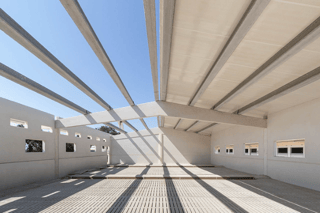Pre-insulated pipe systems are suitable for heating and cooling networks; and are designed to minimise energy losses, being one of the most efficient solutions for installations where thermal insulation is required.
Pre-insulation is suitable for a wide variety of application sites and there is a variety of pre-insulated pipe markets per end-user:
- District heating and cooling
- Hot and cold water distribution networks and HVAC systems.
- Data Centres
- Oil and gas (high and low temperature fluid transport)
- Infrastructure and utilities

The most common pre-insulated pipes market by:
- Pipe Type are: Pre-Insulated Flexible Pipes / Pre-Insulated Rigid Pipes.
- Installation are: Pre-insulated underground pipes / Pre-insulated aboveground pipes
- By material type they are: Metals and alloys / Thermoplastics
- By type of thermal insulation are: Polyurethane / Rockwool / EPS
- By production method they are: Discontinuous / Continuous
The advantages of using pre-insulated pipes are :
- Energy saving and reduction of thermal losses.
- Corrosion protection and longer service life
- Quick and easy installation
- Flexibility in design
- Sustainability and reduced environmental impact
Among the different types of insulation available on the market, the thermal insulation of pipes with rigid polyurethane foam has become an outstanding solution for guaranteeing optimum insulation in pipes, for different reasons such as:
- Thermal insulation: it is one of the thermal insulation products with the lowest thermal conductivity coefficient. It guarantees a low insulation thickness thanks to the low thermal conductivity coefficient of the polyurethane foam.
- Optimizes to the maximum the useful space, thanks to the fact that a minimum thickness is required to have a maximum level of thermal insulation.
- Virtually no water absorption thanks to the closed cell structure of the polyurethane.
- Mechanical properties that give the pipes great rigidity and low weight, which facilitates and economises transport, handling, installation and structural sizing. Ease of machining and cutting.
- Pre-insulated pipes are a prefabricated and very light product for transport to the construction site. The construction of a building, both residential and industrial, with pre-insulated polyurethane pipes generates very little waste, which makes the installation process more sustainable. It is recyclable: polyurethane can be recycled using different techniques such as mechanical recycling, chemical recycling or incineration, recovering the energy. The insulating capacity of polyurethane pre-welded pipes helps to reduce energy consumption.
At Synthesia Tecnology within our SynthePUR D range for industrial systems, we have several 2-component systems designed, among other applications, for pipe filling and insulation.
Component A (formulated Polyol) reacts with component B (Isocyanate) under the recommended processing conditions to produce closed cell rigid polyurethane (PUR) foam.
In turn, the Polyol is formulated with 4th generation foaming agents, which cause very low global warming.
At Synthesia Technology we use recycled PET from plastic bottles in the production of polyols, a key raw material used in the manufacture of high performance insulation. Demonstrating that it is possible to use plastic waste responsibly, recycling it into new products that help reduce energy consumption and CO2 emissions, to the benefit of all. In this way, we promote the development of a circular and sustainable economy.
Three of our leading references for pipe insulation with PU rigid foam using a batch production system are:
|
SynthePUR D |
|||
|
Characteristics |
9762-Z-36 |
7788-L-Z-36 |
9154-Z-42 |
|
Total renewable and recyclable content (% polyol) |
----- |
25 |
11 |
|
Mixing ratio |
100/110 |
100 /115 |
100 /100 |
|
Free density (Kg/m3) |
35-37 |
35-37 |
40-44 |
|
Working time (s) |
12-16 |
34-40 |
34-42 |











